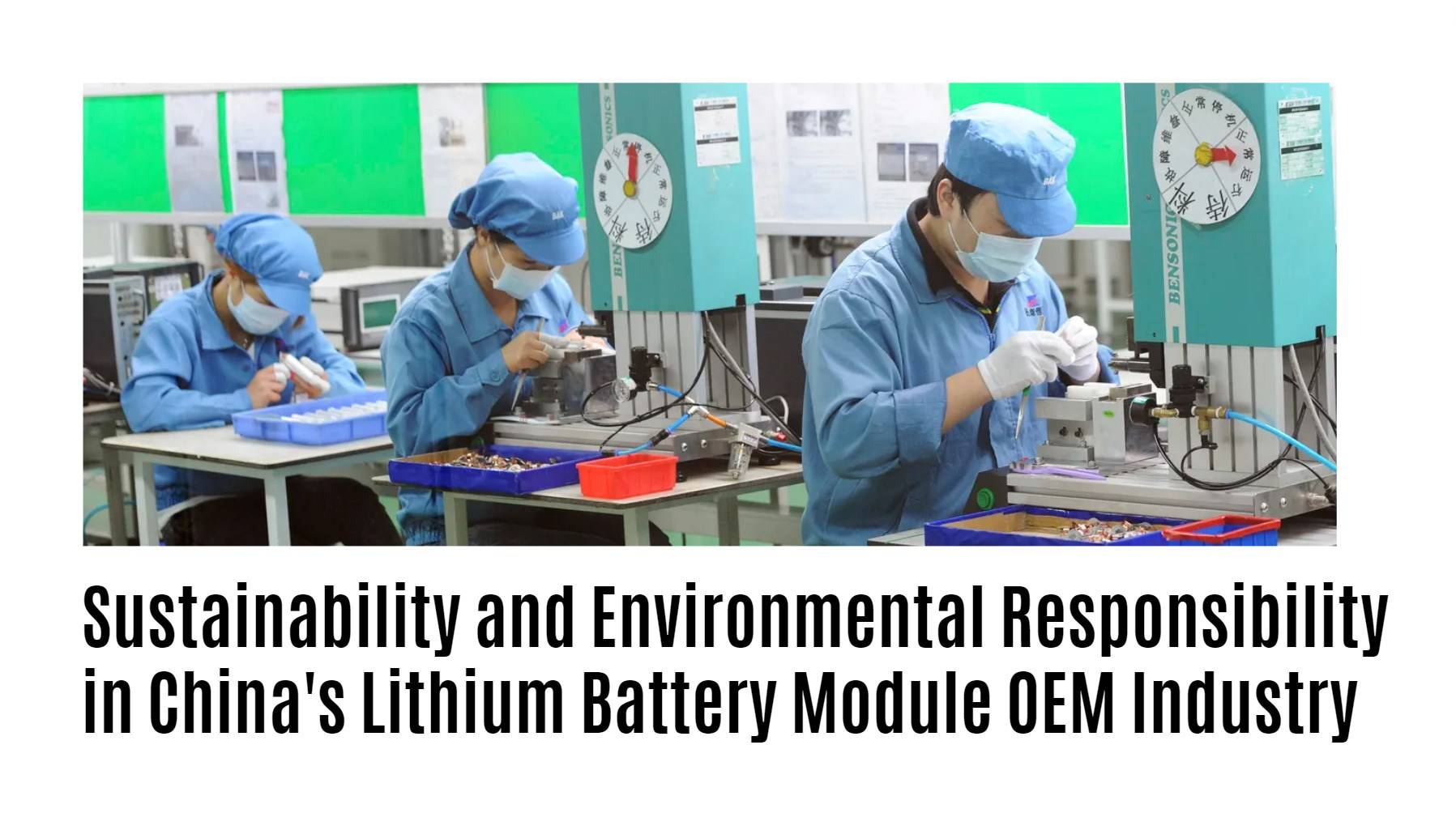As global demand for lithium battery modules escalates, driven by advancements in technology and the push for clean energy, the role of China’s OEM industry in this sector becomes increasingly pivotal. With its dominance in lithium battery production, China is at the forefront of balancing technological innovation with sustainability and environmental responsibility. This article delves into the strides made by China’s lithium battery module OEM industry in integrating sustainable practices, addressing environmental concerns, and setting new benchmarks for responsible production.
Understanding the Scope of China’s Lithium Battery Module OEM Industry
China’s lithium battery module OEM industry plays a crucial role in the global supply chain. These OEMs (Original Equipment Manufacturers) produce essential components for a variety of applications, including electric vehicles (EVs), renewable energy storage, and consumer electronics. Given the rapid growth in demand, it is imperative for these manufacturers to address the environmental impact of their operations.
Scale and Significance
China is a dominant player in the lithium battery market, contributing a significant share of global production. The country’s OEM sector supports a wide range of industries, making it a key player in advancing both technological and environmental goals. The sheer scale of production necessitates a robust framework for sustainable practices to mitigate any adverse effects on the environment.
Sustainability Initiatives in Lithium Battery Manufacturing
Innovative Recycling Technologies
One of the most significant areas of focus in sustainability within the lithium battery sector is the development and implementation of advanced recycling technologies. Leading OEMs in China are investing in technologies that enhance the efficiency of battery recycling, aiming to recover valuable materials like lithium, cobalt, and nickel from spent batteries. This not only reduces the need for raw material extraction but also minimizes the environmental footprint associated with battery disposal.
Closed-loop recycling systems are particularly notable. These systems allow for the continuous reuse of battery materials, significantly reducing waste and resource consumption. By implementing these technologies, Chinese OEMs are setting a precedent for environmentally responsible practices within the industry.
Green Manufacturing Processes
Another key area of focus is the adoption of green manufacturing processes. Chinese lithium battery module OEMs are increasingly embracing energy-efficient production techniques, reducing their overall carbon footprint. Innovations such as low-emission manufacturing and the use of renewable energy sources are becoming standard practices.
For instance, many facilities are transitioning to solar power and other renewable energy sources to power their operations. This shift not only reduces greenhouse gas emissions but also aligns with global efforts to combat climate change.
Environmental Impact Assessments
Regular and thorough environmental impact assessments are crucial in ensuring that manufacturing processes are not harming the environment. Chinese OEMs are investing in comprehensive impact studies to evaluate the effects of their operations on air, water, and soil quality. These assessments help in identifying potential environmental risks and implementing measures to mitigate them.
Corporate Responsibility and Compliance
Regulatory Frameworks and Standards
The Chinese government has introduced a range of regulatory frameworks and standards to promote environmental responsibility within the lithium battery sector. These regulations encompass various aspects, including waste management, emissions control, and resource conservation. OEMs are required to adhere to these standards, ensuring that their operations are compliant with national and international environmental laws.
Industry Certifications
Achieving industry certifications such as ISO 14001 (Environmental Management) and ISO 45001 (Occupational Health and Safety) is a testament to a company’s commitment to sustainable practices. Many leading Chinese OEMs have obtained these certifications, demonstrating their dedication to maintaining high environmental and safety standards in their operations.
Future Trends and Challenges
Advancements in Battery Technology
Looking ahead, advancements in battery technology are expected to further enhance sustainability in the lithium battery module sector. Solid-state batteries, for instance, promise to offer higher energy densities and longer lifespans while reducing reliance on hazardous materials. Chinese OEMs are at the forefront of researching and developing these next-generation battery technologies.
Addressing Raw Material Sourcing
The sourcing of raw materials for lithium batteries remains a critical challenge. As demand for lithium and other key materials increases, ensuring that these resources are sourced ethically and sustainably becomes paramount. Chinese OEMs are working to establish sustainable supply chains, focusing on responsible mining practices and fair trade principles.
Circular Economy Integration
The integration of circular economy principles is another emerging trend. By promoting the reuse and recycling of battery components, OEMs can significantly reduce waste and resource consumption. This approach not only benefits the environment but also supports economic efficiency within the industry.
Conclusion
China’s lithium battery module OEM industry is making substantial strides in integrating sustainability and environmental responsibility into its operations. Through innovative recycling technologies, green manufacturing processes, and stringent compliance with environmental regulations, the industry is setting new standards for responsible production. As the demand for lithium batteries continues to rise, the ongoing commitment to sustainability will be crucial in ensuring that technological advancements align with global environmental goals.
The journey towards a more sustainable and environmentally responsible lithium battery industry is ongoing, and Chinese OEMs are leading the way with their progressive practices and innovative solutions. By continuously advancing these efforts, the industry can contribute to a cleaner, greener future while meeting the growing global demand for lithium battery modules.



